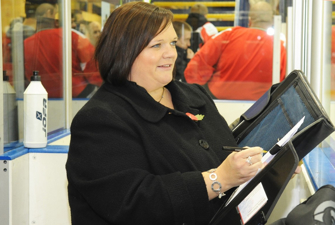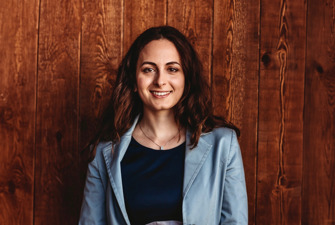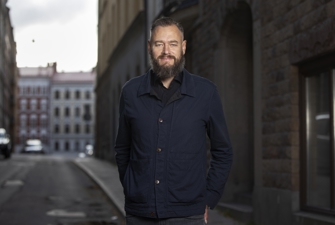Meet the speakers: "We found that some athletes who experienced online abuse ten years ago had still not recovered"
Lauren Burch and Andrea Geurin from Loughborough University London in the UK will present their research on online abuse of female athletes at Play the Game 2024. They describe some of their findings as devastating and believe that female athletes should be offered more support to screen content on their social media profiles.
How did your project come about?
Andrea Geurin: The IOC does an Advanced Olympic Research Grant Programme and one of their priority areas is safeguarding athletes. We understood this to mean mainly physical abuse, but we put in a proposal for a project that would ask how athletes could be best safeguarded online. We saw this as an important issue because athletes didn’t seem to be getting a lot of support. We spent an entire year on this project and aimed to take as much of a global sample as we could.
Lauren Burch: Looking specifically at social media, we saw that a lot of previous research had been focused on Western nations, particularly the USA and the UK. We wanted to expand on that, so our sample included China, New Zealand, Malaysia and South Korea.
Is there an accepted definition of what constitutes online abuse?
Lauren Burch: There are a couple of academic definitions that we used, but even with these we sometimes found it hard to discern what might be seen as intense criticism and what might be seen as abuse.
It is difficult to put a hard definition on it, and cultural differences can be a factor. Included in our definitions were references to protected characteristics such as race, gender, religion and nationality.
What can be the consequences of online abuse?
Andrea Geurin: Without revealing any specific cases, some of the things we heard were devastating. It made athletes feel suicidal. It affected them mentally and emotionally. It affected their performance. For some, it became almost addictive to read it. We heard of coaches or agents having to step in and take athletes’ phones away from them.
We found that athletes who experienced abuse ten years ago had still not recovered. We spoke to people who had worked with athletes who committed suicide. While online abuse may not have been the primary reason, it certainly contributed.
What evidence do you have that online abuse is getting worse?
Andrea Geurin: It’s difficult to look back ten years and say that it has definitely gotten worse. There is a sense that it has, but that may also be because it is getting more attention. There has been very little research that has captured the breadth of abuse, but we can point to cases over time.
Lauren Burch: When you look at the success of female athletes, the success of the women’s Euros and the World Cup, women’s sport certainly has a higher profile. We are doing some work with a company called Signify AI that works in the field of threat mitigation and content moderation. They found that female athletes are proportionately experiencing more abuse online than male athletes. The more attention that you get, the worse it becomes.
Andrea Geurin: If you look at this from a broader standpoint, misogyny is on the rise and there is data from the UN to back this up. In the past, women’s sport has not been as prominent. Now we are seeing the popularity of women’s sport really skyrocket. It is much more successful today in terms of viewership and fandom.
To some people, it threatens the power men’s sport has held for such a long time. People feel threatened by women becoming involved. The things that we see on Twitter and Instagram are public. We’re not seeing the really nasty stuff that gets sent in private messages.
Are female athletes under greater pressure to create a strong social media presence? And could this be a factor?
Andrea Geurin: Absolutely. I did some research into female athletes training for the Olympic Games. I talked to them specifically about using social media to build their brand. They all said that they felt a lot of pressure to be on social platforms in order to develop sponsorships and increase fan following. If they weren’t, they were going to miss out on commercial opportunities that may also be useful when they retire from sport.
They all spoke about the abusive communications that they had received, which included men sending pictures of their body parts, marriage proposals, and things that made them feel really uncomfortable.
What is being done to combat online abuse?
Lauren Burch: There’s still a fundamental lack of understanding about online abuse. Some people might not even think that a problem exists because they just don’t understand how social media works.
One of the things that is being done right now is called enhanced content mitigation. Some companies claim to specialise in this but are unable to monitor Twitter/X in real time. This is a paid service which now costs 40,000 GBP per month.
Signify AI has this ability and developed a tool called Threat Matrix which identifies social media posts using an AI-based classification system with posts then screened by human moderators. It can also monitor direct messages with the permission of the athletes to identify and remove abusive content.
In an ideal world, this service would be offered to athletes for free, but it is difficult when companies like Twitter/X have monetised the ability to filter content. Organisations must find a way to offset these costs.
Andrea Geurin: One of our main findings is that no one is taking responsibility for safeguarding athletes online. When we asked whose responsibility it was, no one could give us a clear answer.
Responsibility may differ depending on the situation or context, but in order to address the issue, it has to be determined. It is going to take a lot of work from the IOC, international federations and national governing bodies.
Lauren Burch is a senior lecturer and Andrea Geurin is a professor at Loughborough University London in the UK.
They will take part in the session 'Women's sports: Participation, experiences and leadership' on Monday 5 February at Play the Game 2024.
Play the Game 2024 will take place in Trondheim, Norway, on 4-7 February 2024.



